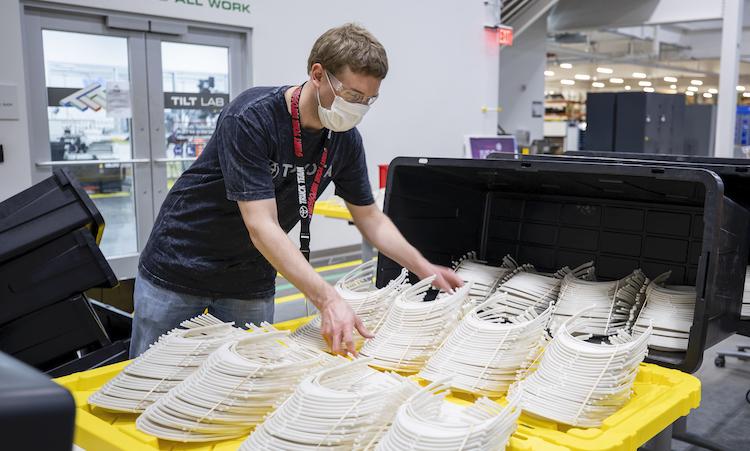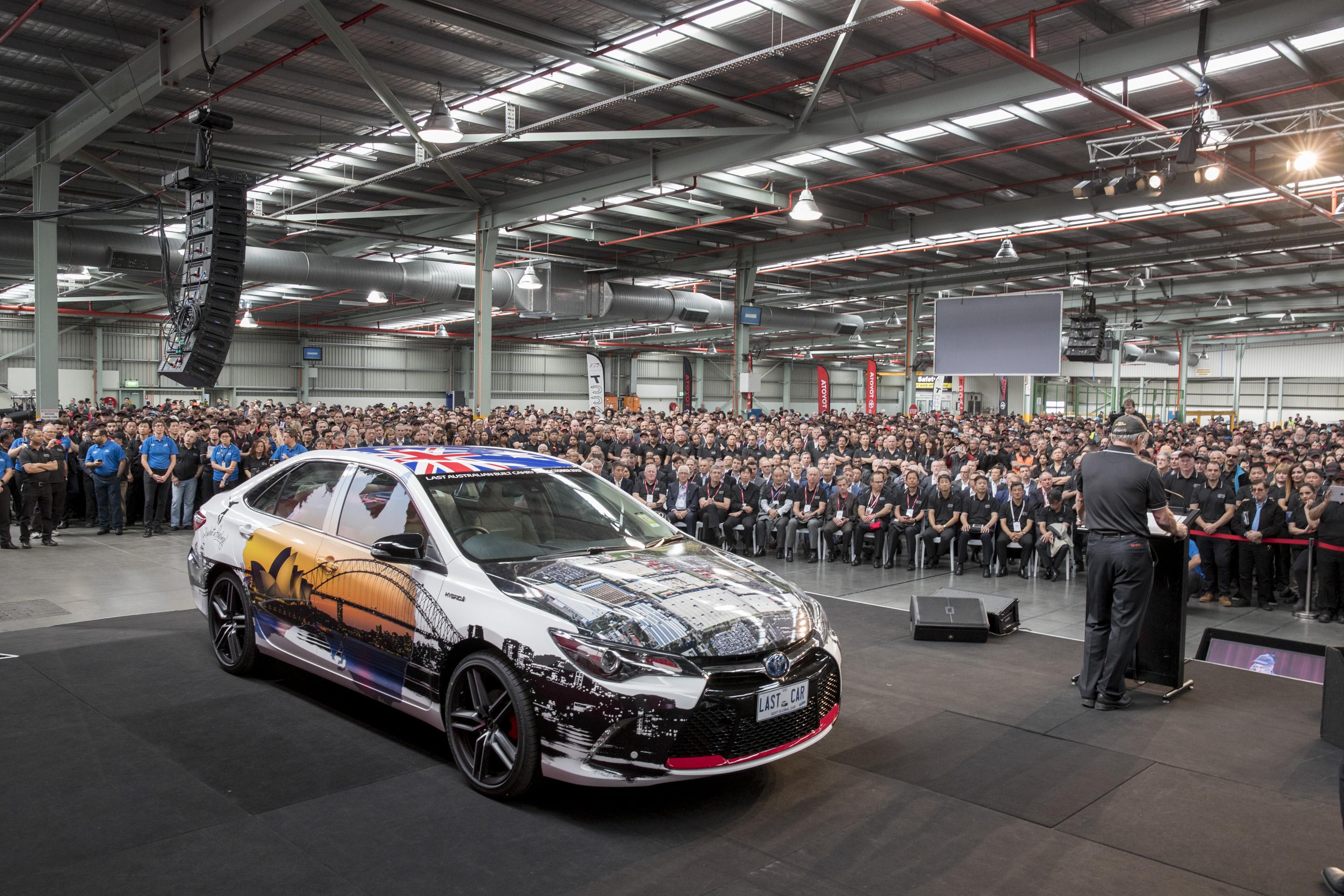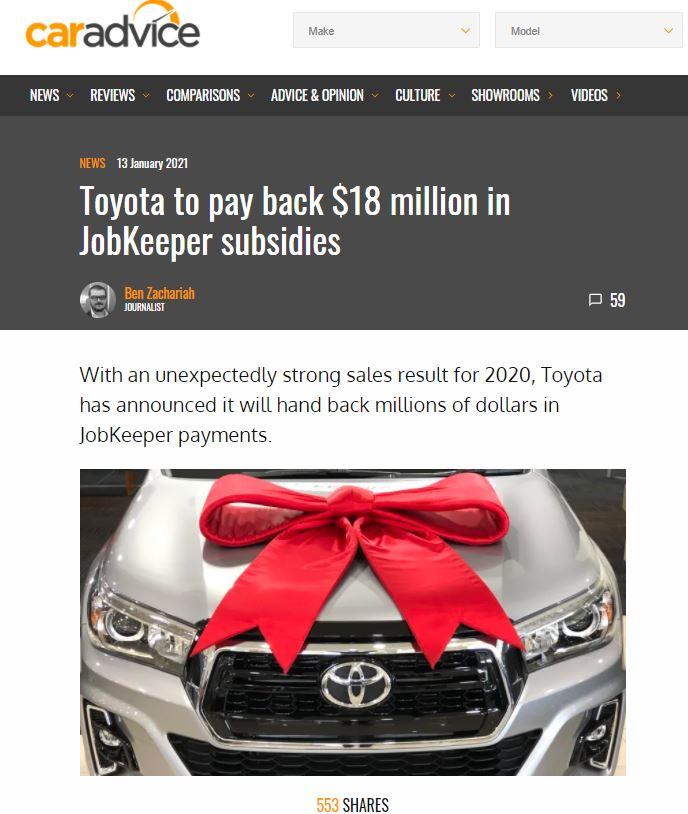
Earlier this year, Toyota Australia earned nationwide praise and attention for deciding to return a job-keeping government subsidy aimed at helping struggling employers during the ongoing COVID-19 pandemic. Toyota Times examines what action and thoughts were behind this honest decision.

More than one year has passed since the outbreak of the COVID-19 pandemic in 2020. While people’s lives around the world continue to be affected, a new full year with COVID-19 has begun along with some signs of economic revival.
In its FY2021 third-quarter financial results announcement in February, Toyota revised its forecast for full-year operating income upward to 2 trillion Japanese yen. At the press briefing, Toyota’s Chief Financial Officer Kenta Kon repeatedly explained that this upward revision was the result of everyone’s effort in “continuously doing what they should”.
This applied to not only what had been done in Japan but also around the world, as Toyota’s 370,000 employees worldwide and all of its stakeholders including suppliers and dealers had built up steady efforts to overcome the COVID-19 crisis.

One such example Toyota Times introduces this time comes from Australia, one of Toyota’s most important markets in the Asia and Oceania region and where Toyota has been the market leader for 18 straight years.
Behind an effort to address the crisis by Toyota Motor Corporation Australia (TMCA) is an admirable story demonstrating a very Toyota-like desire to protect employment.
The lowest level of new car sales in 30 years
“Toyota faced an extremely uncertain future when the COVID-19 health crisis developed into an economic crisis,” said TMCA President & CEO Matthew Callachor, recalling when dealers in the State of Victoria and Tasmania had to shut down back in April, 2020.

In 2020, April industry-wide new car sales in the country recorded their lowest level since 1991 with approximately 39,000 units sold. That marked a 48.5% decrease on a year-on-year basis for the largest drop ever. The outlook started to become more and more uncertain.
Toyota was no exception. Toyota’s new vehicle sales decreased by 31.8 percent in that April, and in May TMCA’s revenue dropped by more than 50 percent.
Thrust into a severe business situation, TMCA decided to apply for the “JobKeeper” payments program offered by the Federal Government to keep the jobs of its employees across the country secure, and it received payments from June to September.
Focusing on doing what should be done
TMCA has the unforgettable experience of having to close its Altona Plant in a suburb of Melbourne in October 2017 after having produced vehicles there for 54 years.

Toyota had made every effort to continue production in the country until the very end. However, due to various factors that made it more difficult to keep the business feasible, such as a strong Australian dollar and a weakened manufacturing base accelerated by competitors’ decisions to end Australian production, Toyota had to make the painful decision to close the plant.
As Toyota President Akio Toyoda lamented at the time that the decision was “tearing him up inside,” it was an event that Toyota will never forget as a company that has valued contribution to society by preserving employment and continuing to pay taxes.
Several years later, when the COVID-19 pandemic hit and began to negatively impact the economy, TMCA, in the Toyota spirit of wanting to preserve jobs and support economic recovery through automobiles, focused on delivering safety and peace of mind to its customers.
In sales, TMCA expanded online services and introduced a contactless payment system. It also started to provide COVID-19 hardship support to customers who had become unable to make payments.
As part of its relief efforts, TMCA team members worked together with NPOs to provide meal services to those in need and supported medical workers by producing face shields to prevent the spread of the virus.
Thinking through what each person could do, everyone took action for customers and communities.
Thanks to such efforts, when overall new car sales recovered to almost the same level as the previous year in October with more than 82,000 units, Toyota recorded more than 19,000 units that month, or an approximately 15 percent year-on-year increase.
In the following months, Toyota’s sales increases largely exceeded those of the market, with Toyota marking a 29.1 percent increase for the quarter from October to December compared to a year earlier. In the end, Toyota sales in 2020 came to 204,000 units, or nearly the same as in 2019. TMCA had successfully minimized the impact of the COVID-19 pandemic.
A decision welcomed by the prime minister
TMCA had an announcement to make on January 12: It would return the more than 18 million Australian dollars (approximately 14 million US dollars) JobKeeper payments received from the government in 2020, following its strong sales performance in the final quarter of that year.
The news spread quickly across the country as Toyota was the first established company to make such a decision. After an interview with CEO Callachor was posted on web news media outlets, many people praised the company for its decision on social media, and others national media from TV and radio stations to newspapers reported on this decision.

Dealers and team members shared many comments, saying: “It is a wonderful decision in consideration of the benefits for the country” and “I am proud of working for Toyota.”
Even Australian Prime Minister Scott Morrison praised TMCA’s decision. The announcement had an impact on other companies, leading to similar decisions by companies who were able to manage the impact from COVID-19.
The right thing to do
Companies are not required to return the subsidy once they receive it. But TMCA did return it, and CEO Callachor explained why.
CEO Matthew Callachor
In December, it became clear the industry had improved dramatically, so the Executive Management Committee met to discuss our JobKeeper position.
We discussed Toyota’s mission of contributing to our local communities and economy, our responsibility as a corporate citizen, and the positive effects this repayment could have on the Australian taxpayer.
As soon as we ascertained our recovery and outlook, there was an instant decision made by the Executive Management Committee to return the payments as it was the right thing to do as a corporate citizen.
Many of us had also experienced Toyota’s World Conference in October last year and felt that returning the subsidy was an important way to show leadership in line with Akio’s vision – “Producing happiness for all”, in this case for Australians during the COVID-19 pandemic.

In the ongoing COVID-19 crisis, there are still many people and companies struggling to make a living. In such a situation, after having made repeated efforts in doing what it should do and confirmed a clearer outlook, TMCA decided to return the JobKeeper subsidy for the sake of those who are in real need.
There might have been a desire to reserve cash for another unexpected contingency, but for TMCA, which has sincerely thought of the importance of employment and local communities over the past several years, there was no choice other than to return the subsidy, as it was the right thing to do.

